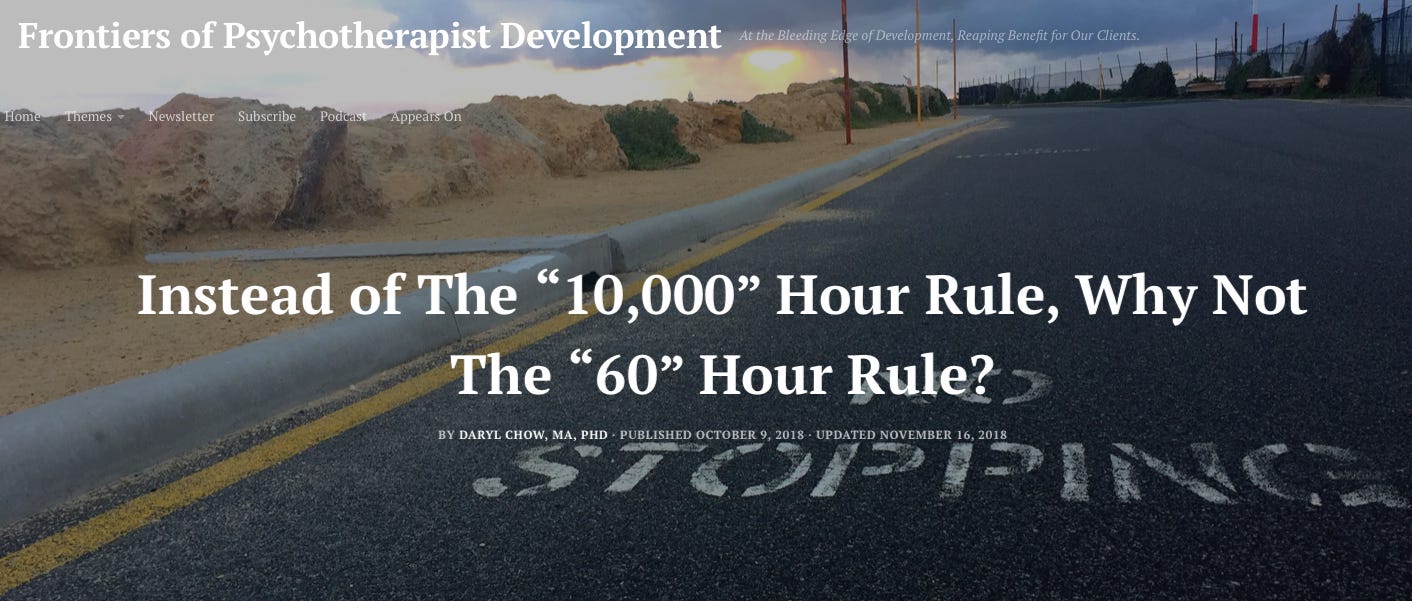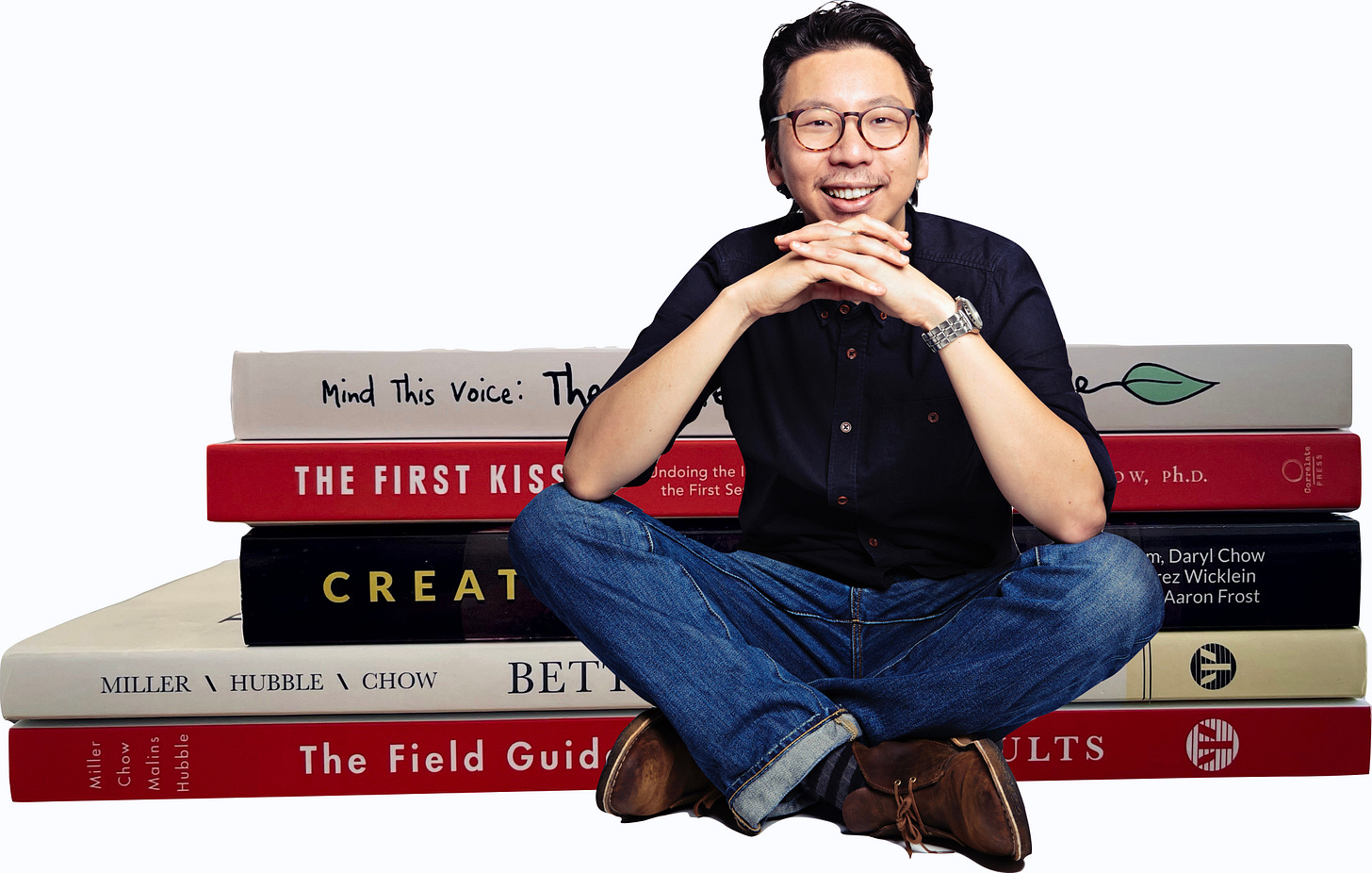10 Years of Frontiers of Psychotherapist Development (FPD). Frontiers Friday #189 ⭕️
A decade of thinking out loud and moving towards the bleeding edge.
We are currently trying to compile some of the articles into relevant topics for a “START HERE” page in Frontiers of Psychotherapist Development (FPD). In the midst of doing so, I glanced at the date of my first post. It was 22nd of Apr 2014.
Holy molly, it has been 10 years.
Reading my past writings makes me cringe. The awkward sentences, the bad analogies, the typos, etc. I have still so much to learn in getting better at the craft of writing.
That said, despite the agony of the process, writing has been a gift to me. It has helped me sharpen my thinking. I end up write not what I know, but writing as a way to know.
Pushing all of that aside, I thought it might be a good idea to bring forward some of these old posts, as we have many new people joining us here on Substack of late.
I hope they speak to you.
Therapy Learnings: A Memorable Practice
My first FPD post.Develop First Principles Before The Methods
This piece has stood the test of time. This topic of developing first principles has provoked lots of thoughts when I conduct live workshops.My hope is that more clinicians develop their own first principles to guide their clinical practice, and not get stuck with approaches and methods.
Here are two follow-up articles on this:
Three Ways to Develop First Principles in Your Clinical PracticeFirst Principles: The 5-Step Process for Deep and Accelerated Learning
The Iterative Pathway of a Psychotherapist’s Professional Development
Progress does not move in a straight line; it goes in circles.
Does Your Mindset Really Matter?
Should we really be asking if you have a “growth” or “fixed” mindset? Is there a better question?
Instead of The “10,000” Hour Rule, Why Not The “60” Hour Rule?
A short piece, but an important one.
Notice Board
The Measured Course: Pay-for-What-You-Want:
I’ve been really taken by the idea of true Gifts, as described by writers like Lewis Hyde and Charles Eisenstein1.
I vividly remember the day Radiohead released their 2007 album, In Rainbows (on my birthday). I couldn’t believe it. I never heard of such a price-point. You mean, I could just pay $1 or $1000?!
It was a “pay-for-what-you-want” model. I couldn’t make sense of it. I was a huge fan, so I bought it at $20, because I thought that’s what you’d pay for a CD. I loved the album so much that later on, I went to the now defunct Tower Records and bought the physical copy.I’m telling you this naive story of mine because I’ve been wanting to embrace this Gift business model for a long time, but just didn’t have the courage to do so.
Well, I’m doing so now.
I have a course, that I’ve not publicised. It’s called Measured. It’s a nuts and bolts of Feedback Informed Treatment (FIT). If you are just getting started with measuring outcomes, and don’t want to use it just as an evaluative tool, but more of a conversational tool, this is for you.
A Gift is only a gift if it meets a need. If you would like to get this online course, drop us an email at admin@darylchow.com. John or I will send you a special code to bypass the $485 fees, and then we will send you PayPal/Wise details for your “pay-for-what-you-want” option.I’d do this until the end of June 2024, and see how it goes.
Daryl Chow Ph.D. is the author of The First Kiss, co-author of Better Results, The Write to Recovery, Creating Impact, and the latest book The Field Guide to Better Results.
See theses books: Lewis Hyde’s The Gift and Charles Eisenstein’s Sacred Economics.










Congratulations on 10 years of writing Daryl!!!!